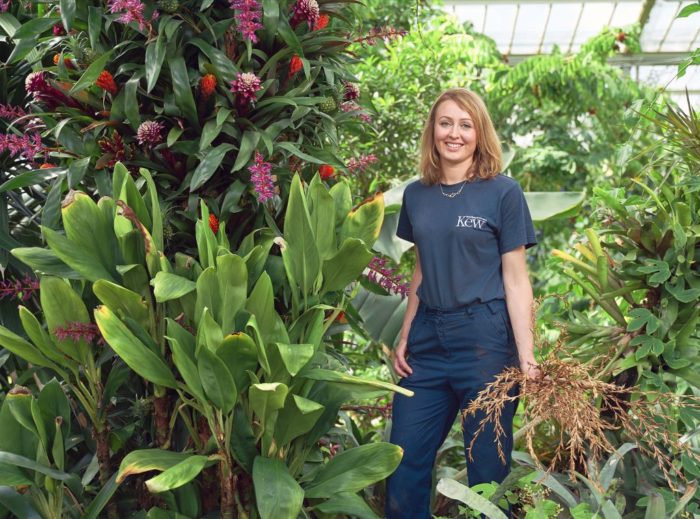My Britain: Interview with Hannah Button, Horticulturist at Kew Gardens
We love finding out where Britain’s public-facing ambassadors like to spend their time. We caught up with green-fingered Hannah Button, Horticulturist at Kew Gardens in west London, to learn where her happy place is
I work in the Princess of Wales Conservatory at the Royal Botanic Gardens, Kew. I help to cultivate displays of tropical and temperate plant collections. There are 10 different climate zones, so it’s a big responsibility. One in five of the world’s plant species are now at risk of extinction so it’s a race against time.
Kew is a very special place to work. It’s impossible to walk into the cathedral-like space of the Temperate House and not feel awed by the ingenuity of our Victorian architects. So many visitors have fond memories of playing in the garden as children and we’ve had three marriage proposals already this year.
The art galleries at Kew are hidden botanical gems. The Marianne North Gallery is like being inside a painted jewellery box, it is one of the most beautiful rooms I’ve ever seen. Every picture feels like a portal to another place in time. It is a magical place.
My first job was in a bedding plant nursery in the village of Crowle in Worcester. I enjoyed it so much that I studied horticulture at Pershore College nearby.
I used to volunteer at both Hidcote Manor Gardens and Coughton Court. The latter is a Tudor home in Warwickshire managed by the National Trust. One of the best-kept secrets is the award-winning Labyrinth Rose Garden, designed by Christina Williams.
When I’m not working, I like to take a picnic from the Duck Pond Market in Richmond and eat it by the river. Holland Park also has an absolutely beautiful and tranquil Japanese garden that not many people know.
My happy place is Mary Arden’s Farm in Warwickshire. Historians bring a working Elizabethan farm to life and each day they cook a Tudor feast on an open fire and look after rare breed farm animals whilst explaining about the life and times of Shakespeare.




